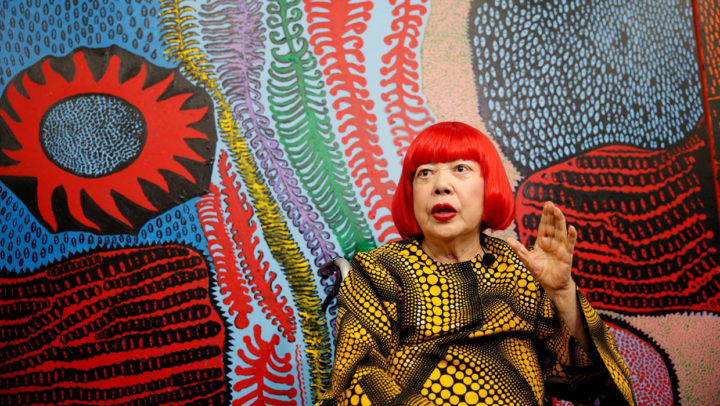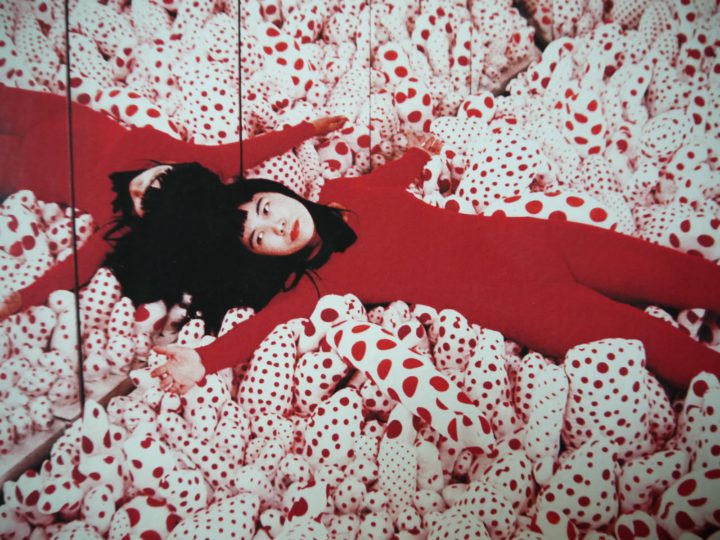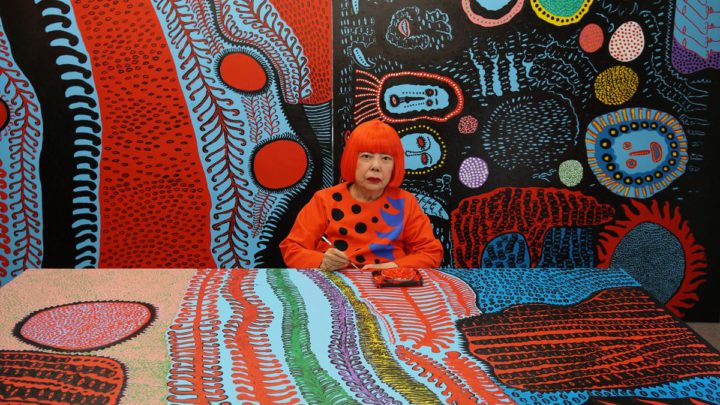
As someone who dabbled in artistic endeavors in my youth, I can say definitively that the world of the avant-garde left me more than a bit confused at times. Postmodern installation work always struck me as an act of intellectual and aesthetic sleight of hand, audacious con jobs engineered to bilk the bourgeoisie out of substantial sums of cash in punishment for their largess and lack of taste. If I’ve ever seen a cogent argument to the contrary, it would most certainly be documentarian Heather Lenz’s portrait of Japanese painter and sculptor Yayoi Kusama. With Kusama: Infinity, Lenz has developed more than a simple biopic; she’s also elucidated the character and circumstances that forged one of the most prolific and popular artists of the last 50 years and perhaps the most underacknowledged and influential figure in contemporary art

It might not be entirely accurate to say that I was unfamiliar with Kusama — I had seen her work before, but never thought much about the person behind it. This is where Lenz’s approach is particularly effective, even as it threatens to err on the exhaustive side. Lenz’s film is structured with a cautious classicism, presenting a linear chronology with the requisite talking-head commentary from art world bigwigs and Kusama herself. This takes us from her difficult youth in a rural Japanese mountain town, leading into the first exhibit of her watercolor work in the mid-1950s, then delving into her move to New York and the creation of her better-known abstract “infinity net” paintings in the early ’60s and her later sculptural installations and Vietnam-era politicized provocations before arriving at her present-day critical reappraisal.

Perhaps the only flaw with this approach is that it lacks anything resembling the creative innovativeness of its subject. Even still, Lenz contextualizes Kusama’s work with admirable clarity and insight. The artist’s psychological struggles and suicide attempts are presented with thoughtful restraint, avoiding lazy sensationalism. When we learn the extent to which Kusama’s work was unduly marginalized due to her ethnicity and gender, it’s easy to understand why she became so morbidly depressed. After all, how would you feel if no less than Claes Oldenburg and Andy Warhol were ripping off your work and being lauded for their originality while you struggled against overwhelming odds to find patrons and gallery space?

Kusama: Infinity is at its best when it allows the artist to speak for herself and her work to carry the visual aesthetic of the film. Lenz, to her credit, shows the prescience to place Kusama’s art at the fore, ably exploiting the particularly cinematic qualities of the artist’s installation work. While I have no doubt that Kusama’s mirrored-room “peep show” installations are more impressive in person, Lenz’s camera eye captures not only the visual spectacle of such pieces but also indicates the thinking behind them. Visually engaging and thematically resonant, Kusama: Infinity is a film that one doesn’t see so much as experience, and in the process, Lenz sheds an overdue light on a singular artistic voice. Not Rated.
Now Playing at Grail Moviehouse.




Before you comment
The comments section is here to provide a platform for civil dialogue on the issues we face together as a local community. Xpress is committed to offering this platform for all voices, but when the tone of the discussion gets nasty or strays off topic, we believe many people choose not to participate. Xpress editors are determined to moderate comments to ensure a constructive interchange is maintained. All comments judged not to be in keeping with the spirit of civil discourse will be removed and repeat violators will be banned. See here for our terms of service. Thank you for being part of this effort to promote respectful discussion.